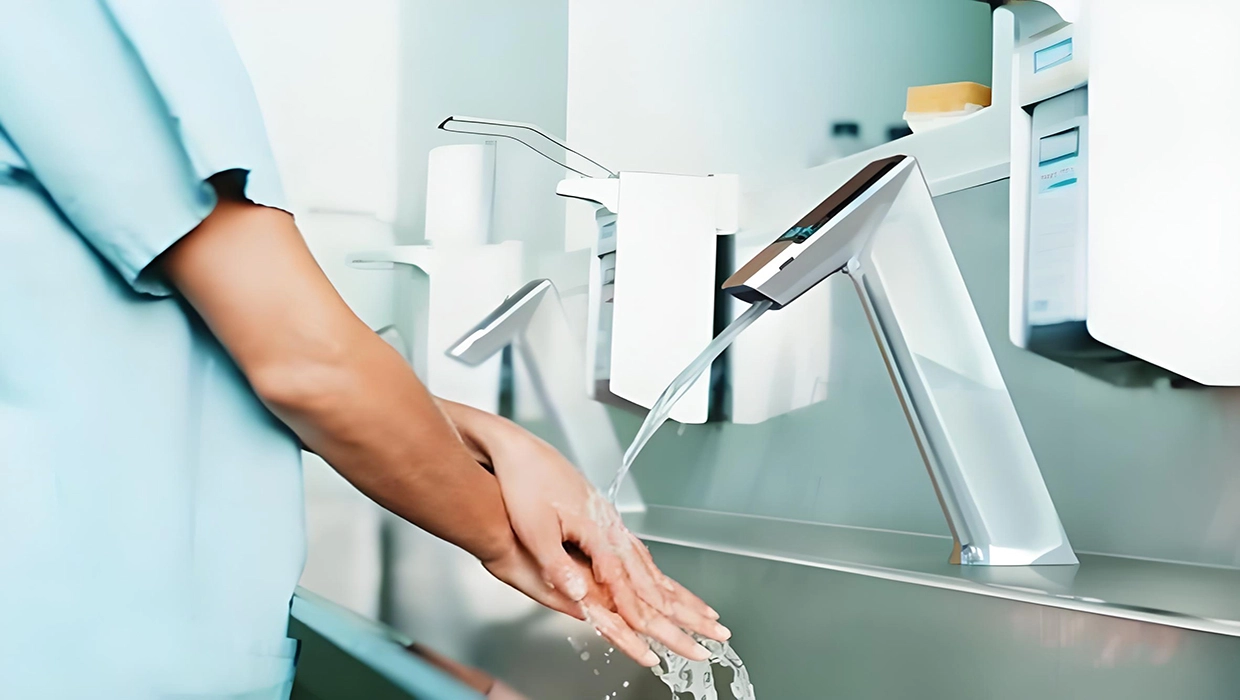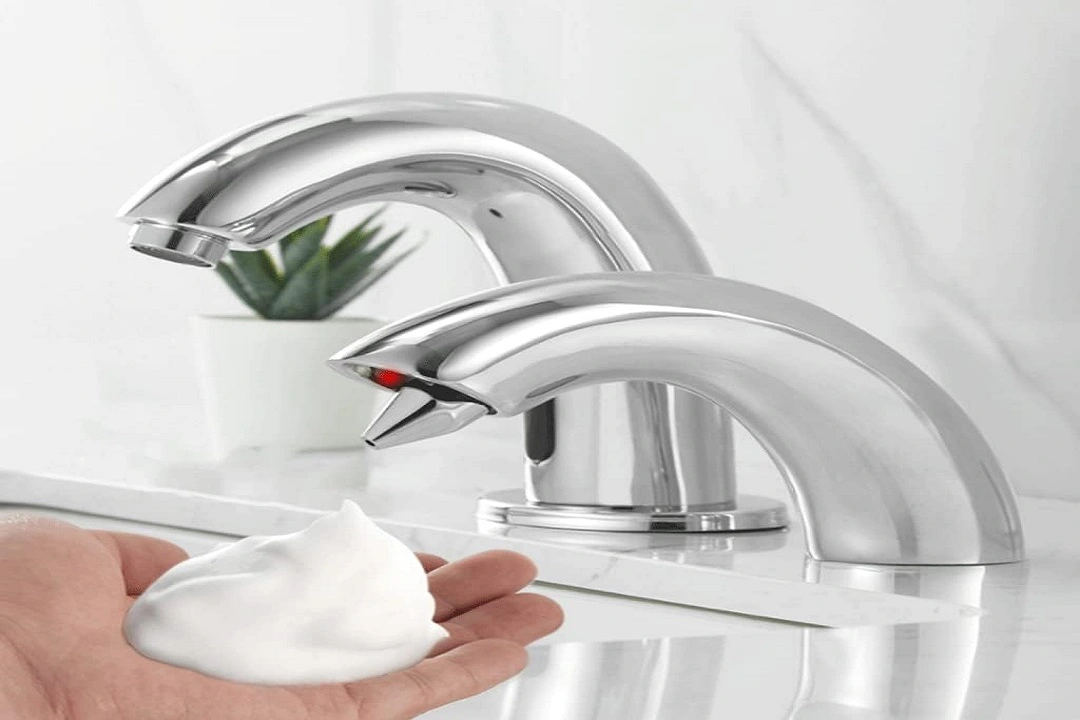Search

The hospital and its medical environment is a place where patients are concentrated, and it is also an environment where bacteria and viruses can easily spread. Therefore, the prevention of cross-infection is crucial. Traditional faucets are manually operated and require physical contact, posing a significant risk of cross-contamination. Non-contact medical taps use sensor technology to activate water flow without the need for direct contact. As key devices for reducing the spread of bacteria and improving hygiene standards, non-touch medical taps play an important role in hospitals and other medical institutions. They not only minimize the spread of bacteria and viruses but also promote better hand hygiene practices among healthcare workers and patients.
In operating rooms and Intensive Care Units (ICUs), maintaining extreme hygiene conditions is crucial. Non-touch medical taps significantly reduce the risk of bacteria and virus transmission via contact by eliminating the need for hand contact with the faucet. This is particularly important for sterile operations in surgeries and for patients with weakened immune systems in ICUs. Additionally, non-touch faucets reduce the time healthcare personnel spend washing and disinfecting their hands, allowing them to focus more on patient care.
Public areas of hospitals, including restrooms, lounges, and cafeterias, see large numbers of people daily. Installing non-touch faucets in these areas can reduce cross-infection caused by contact transmission. Moreover, the use of these faucets reduces the need for paper towels and other drying materials, contributing to the hospital's green sustainability. The convenience of non-touch taps also enhances patient satisfaction, making them feel that the hospital values hygiene and convenience.
In emergency medical situations, every second is critical. Non-touch taps can quickly respond to the needs of healthcare personnel, providing water flow without the need for manual operation, greatly improving the efficiency of hand washing and cleaning. This not only speeds up the preparatory work of healthcare staff but also ensures that their hand hygiene is quickly and effectively guaranteed when handling emergencies. Additionally, the quick water flow helps reduce potential infection risks caused by waiting for water sources.
HOTEC medical taps are typically designed with sensors that can detect whether hands or objects are below the faucet. This hands-free operation not only minimizes the risk of infection transmission but also promotes a cleaner and more sterile environment. In high-traffic areas (such as hospitals and clinics), maintaining hygiene is crucial, and these faucets provide a critical layer of protection.
Besides the hygiene benefits, non-contact medical taps help improve the efficiency of medical workflows. Healthcare personnel are often pressed for time, and any opportunity to streamline tasks can significantly impact patient care. Non-contact taps allow staff to wash their hands quickly and effectively without turning handles or manually adjusting water temperature.
Non-touch medical taps play a critical role in medical environments, not only enhancing hygiene and safety standards but also improving the user experience for healthcare workers and patients. The HOTEC brand, through its innovative technology and high-quality products, provides effective solutions for the medical industry, helping propel medical environments towards more hygienic and safer practices.




